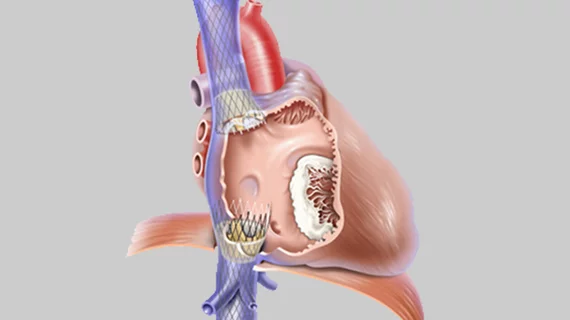Interventional cardiologists complete first heart procedure of its kind in North America
Interventional cardiologists at Cleveland Clinic have successfully completed the first implantation in North America of the TricValve Transcatheter Bicaval Valves System. The patient for his historic procedure was an 82-year-old man presenting with severe symptomatic tricuspid regurgitation (TR) and right heart failure (RHF).
The structural heart procedure occurred in February 2022.
Rishi Puri, MD, PhD, an interventional cardiologist with Cleveland Clinic, and Samir Kapadia, MD, chair of cardiovascular medicine at Cleveland Clinic, performed the procedure. Puri has years of experience with the TricValve system, participating in a thorough analysis of its safety and effectiveness in 2021.
The TricValve system features two biological valves designed to be implanted via femoral vein access into the patient’s superior vena cava and inferior vena cava. This allows a therapy without impacting the patient's native tricuspid valve. It is available in multiple sizes, allowing cardiologists to choose the best option for each individual patient.
Cleveland Clinic’s statement detailing the successful procedure notes that patients with severe TR and RHF have typically had limited treatment options. Tricuspid valve surgery is associated with significant risks, for instance, and prescribing diuretics is problematic when the patient also presents with kidney problems.
“TricValve can potentially provide an effective and low-risk solution for many patients who currently have no treatment options,” Puri said, adding that the workflow is quite similar to transcatheter aortic valve replacement.
The TricValve Transcatheter Bicaval Valves System was developed by P+F Products + Features GmbH, a healthcare technology company based out of Vienna, Austria. The solution was granted the FDA’s Breakthrough Device designation in December 2020, but it has still not gained full FDA approval.
This procedure was completed under a compassionate-use clearance from the FDA.
Related Structural Heart Disease Content:
The latest data on mitral valve infective endocarditis after TAVR
VIDEO: TAVR durability outperforms surgical valves
How the continued rise of TAVR has impacted SAVR outcomes
VIDEO: Pascal effective in transcatheter repair of tricuspid valve regurgitation
VIDEO: MitraClip vs. surgical mitral valve replacement
Older LAAO patients, especially women, face a higher risk of complications

